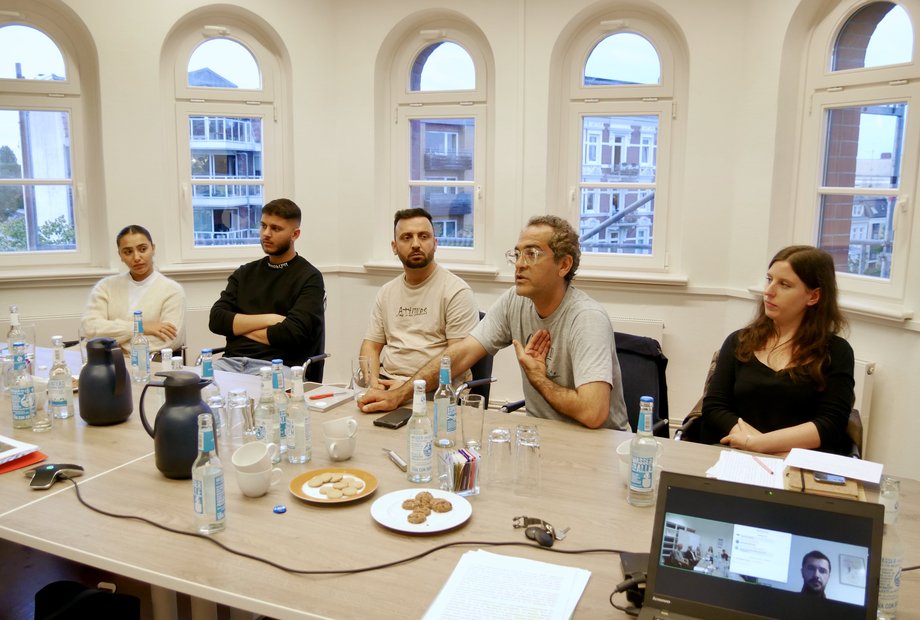At the IFSH, the research focuses on the search for non-violent solutions to national and international crises, conflicts and wars. The project “doing peace” has been running since 2020 and is breaking new ground by working with people, institutions and facilities outside of science. The project’s focus is on questions like: How can peacebuilding succeed from below? How are peacebuilding processes initiated and maintained on site? What are the building bricks for a peaceful co-existence, not only in conflict areas but also here in Germany?
In the project, the IFSH researcher have worked together with refugees and people with migrant background. “We have read a lot and gained a lot of knowledge. But we have not yet understood how peace in everyday life works in social reality, explained Dr Anna Kreikemeyer. Together with Lea Brost, she led the workshop “doing Peace! Among and with refugees.” “We didn’t want to limit ourselves to our knowledge and ideas. We wanted to learn, open up, observe and listen to what the refugees have to tell and say”, added Anna Kreikemeyer.
Kreikemeyer and Brost received support from various projects and organisations providing assistance to refugees, for example the Research Office for Social Innovation at the University of Hamburg (ROSI), Fördern & wohnen, Flüchtlingshilfe Kirchwerder, Basis und Woge e.V., BI Bildung & Integration Hamburg Süd, Migrantpolitan bei Kampnagel – to name just a few. With their help, the two researchers managed to get in contact with the refugees.
A group of about ten people from Ukraine, Syria, Iran, Turkey and Afghanistan were invited to several meetings. They told their personal stories and showed pictures and photos to the researchers and explained from their point of view what "doing peace” is all about. Thus, Anna Kreikemeyer and Lea Brost learned a lot about the reality of the refugees’ lives. They listened to how exhausting it can be to live in a constant state of insecurity. Be it because you have no income of your own or living with the constant fear of being deported. They listened to stories about homesickness, cultural differences in the host country, bureaucratic hurdles and almost unsurmountable language barriers.
In the final session the results of the joint meetings were presented. Some of the participants showed their experiences and wishes for a peaceful co-existence visually. They had created small social media films, put together photo collages and gave short presentations. Although the migration backgrounds and individual experiences of the participants were quite diverse, the decisive factors were quickly identified when discussing the most important factors for a peaceful and secure co-existence: legal certainty, being able to live free from economic hardship, treating each other respectfully, talking and getting to know each other, being open-minded, overcoming cultural boundaries and prejudices and finding common interests. Co-project manager Lea Brost summarised the most important keywords and results at the end. “Wars cannot be ended by discussions alone, but discussions are the heart and the foundation of a peaceful and respectful coexistence”, concluded the peace researcher and gave each participant a certificate of participation.





